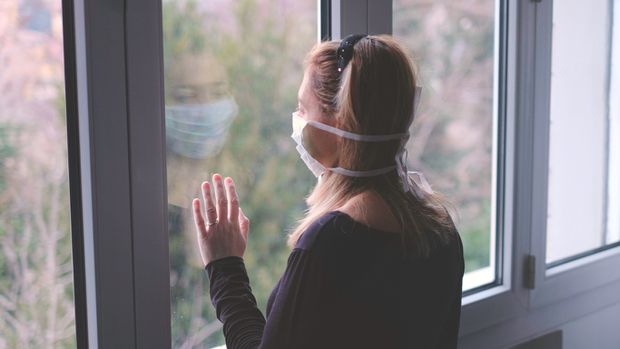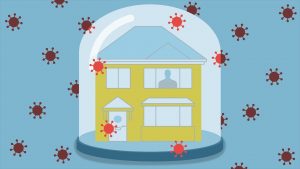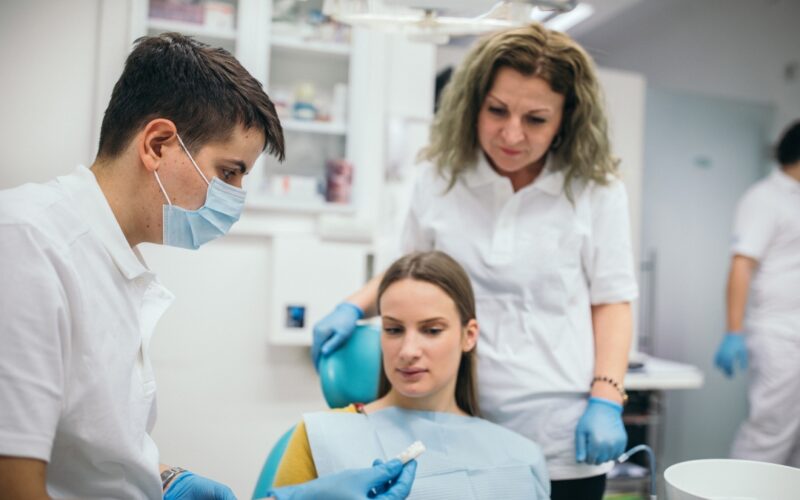
 As health officials seek to suppress the COVID-19 outbreak, growing numbers of people are told to self-quarantine or to separate themselves every day. And if you’re a parent or caretaker of elderly people, you might feel exhausted just as you talk about these steps. Although these terms can cause sci-fi visions of hazmat suits or cushioned solitary cells, the fact is much less scary. Here’s what you need to know if you’ve been told to self-quarantine, or someone you know.
As health officials seek to suppress the COVID-19 outbreak, growing numbers of people are told to self-quarantine or to separate themselves every day. And if you’re a parent or caretaker of elderly people, you might feel exhausted just as you talk about these steps. Although these terms can cause sci-fi visions of hazmat suits or cushioned solitary cells, the fact is much less scary. Here’s what you need to know if you’ve been told to self-quarantine, or someone you know.
What is the difference between self-isolation and Quarantine
Difference between Self-isolation and Quarantine (Source : Youtube https://www.youtube.com/watch?v=qIbC85y8bJA)
The CDC reports that quarantines will restrict the travel of people that may be vulnerable to infectious diseases to see if they get ill. Such individuals are asymptomatic but either have moved to an area of active viral outbreak or have been closely connected with a lab-based case of COVID-19. Self-quarantining helps health authorities to track signs closely and avoid further spread of the virus. The self-quarantine person is told to stay at home and to prevent encounters for 14 days.
For the end, loneliness means the alienation of sick persons from the rest of the population. Self-isolation allows people the opportunity to heal from the virus without transmitting it to other individuals. Patients having screened COVID-19 in a positive manner will auto-isolate until:
- You have not had any fever for least 72 hours (this means no fever for three whole days without the use of medications to suppress fever) and
- Other symptoms changed (e.g. increase in cough, or loss of breath) and
- For least 7 days have elapsed after the symptoms come first.
What would I do if I have been told to separate myself or to self-quarantine?
(Source : YouTube https://www.youtube.com/watch?v=kZnJ-oPuYE0)
While self-quarantine and self-insulation may be frightful, it is important to remember that the vast majority of people who have contracted COVID-19 up till now have mild cold or grip-like symptoms and recovered completely. That said, for anyone deemed high-risk the virus may be lethal. It is therefore very necessary that we take the measures needed to avoid spread of the virus. Here is how, during quarantine or isolation, you and others will defend yourselves:
Stay at home
Restrict the out- of-home trips to medical care and do not go to school or work. Additionally, you can stop public transit, ride-sharing and taxis. Consider using a meal or grocery delivery service where you can drop your food just outside your door if you need groceries.
Separate yourself
The CDC advises that you stay in one room as long as you can whether you live with roommates or family members. When necessary, you can have a different toilet as well.
Put on a mask
If you’re ill and have to go in public or be around other people, it’s necessary to wear a face mask to avoid the spread of the virus. Need to put a face mask on when you reach the doctor’s office or when you fly to and from your doctor’s appointments. If you don’t have one when you visit, the company will supply you with one that you can have on hand for home travel and potential use.
Keep yourself away from pets
While there have been no reported cases of animals spreading COVID-19 to humans, it is also advised that individuals with COVID-19 have limited interaction with animals until more evidence is available on the virus. When you need to take care of your pet if you’re away, make sure you wear a facial mask and wash your hands before and after engaging with your cat.
Do not exchange personal belongings
To avoid disease transmission, do not exchange with other persons in your kitchen plates, utensils, towels or other personal objects. They should be thoroughly washed with soap and water after using these things.
Keep your hands clean
Wash your hands regularly with soap and water for at least 20 seconds, and if soap and water are not available, use an alcohol-based hand sanitizer.
Sweep and disinfect surfaces
Replace “high-touch” surfaces, such as counter tops, doorknobs, sinks, phones and keyboards, using kitchen cleaners and wipers.
Keep yourself engaged in exercise
Staying busy will keep you both mentally and physically safe throughout your quarantine time. Exercise can help lower elevated cortisol levels as well as cause the release of endorphins, improving your overall health and satisfaction. If you feel well enough and do not have noticeable signs, attempt your exercise at home to prevent physical interaction with others. Just going up a few stairs or having a dance party in your house can be helpful.
Stay in contact with friends and family
Work suggests that spending time with people you care for will improve your level of satisfaction. When you’re self-centred, consider communicating with your friends and family via video chat or phone calls.
Track your symptoms
If your symptoms intensify, call your primary care doctor or call our 24/7 virtual health care team. Please stop going to one medical center or other health care establishment as instructed by your health care provider. When you have a medical emergency, please dial the emergency number.
Even if you do not exhibit symptoms of COVID-19, it is important to obey these precautions for the full quarantine or isolation time. When you are not sure how to end your loneliness, please contact your health care provider.





